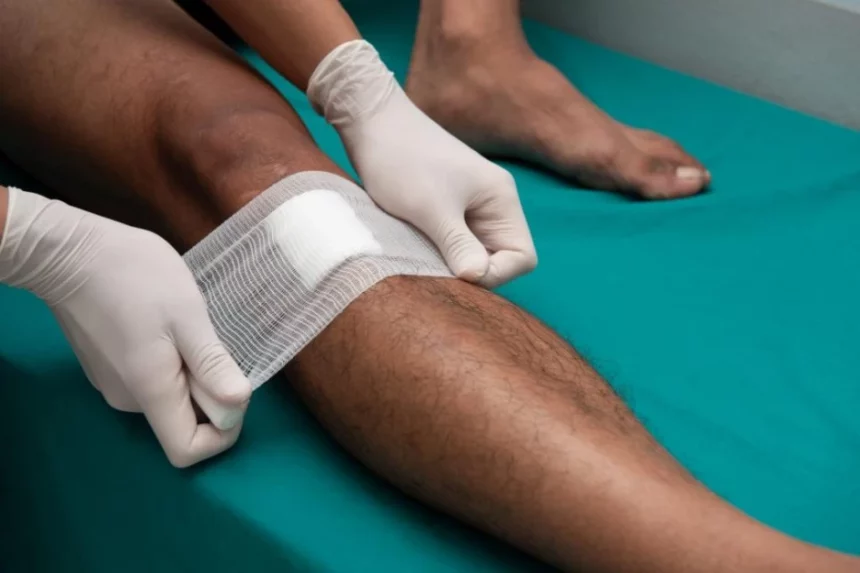While anyone can get injured or have a wound, age, underlying conditions and infections make people susceptible to stubborn wounds.
According to Dr Kennedy Omondi, a Wound Specialist, conditions like hypertension, diabetes and other immune deficiency conditions and infections play a huge role in delaying the healing process.
Omondi told Citizen Digital that acute and chronic wounds can stagnate healing especially if they have local systemic infection and moisture imbalance.
“This can only be identified by a medical practitioner, I tend to different types of wounds from cuts, chemical burns, trauma wounds and surgical wounds,’ he says.
Omondi notes some wounds are not only limb-threatening, but life-threatening as well.
By applying an innovative wound dressing that gets absorbed by the skin, patients with severe wounds stand a chance of getting back on their feet.
“Over the years, we have had significant contribution to this field and has served as a foundation for improving wound care. I use scientifically engineered products and technologies that make wounds heal quicker. Wounds have the capability to regenerate on its own then it becomes our responsibility to ensure there is going to be a conducive environment for quick closer and fewer days,” he explains.
The specialist notes that advanced dressing materials are scientifically engineered to manage infections and stimulate regenerate of tissues and avoid sepsis.
“Some people struggle with non-healing wounds, on this case growth factor concentrate comes in handy, this is where we take patients’ blood and extract growth factors then inject it back to the wound and facilitate regeneration of tissues,” he says.
“We currently use a technic that does less harm to the wound, like we do not need to change the dressing daily, we use a technic that can have a dress up to 7 days. We have devices which can be connected and help with quick closure and regenerate,” he adds.
Minor open wounds can usually be managed at home by applying pressure and a bandage. But large wounds, or wounds that won’t stop bleeding, require medical care.
Omondi cautions people not to overlook a wound and visit the hospital when they notice swellings, redness or pus.
Some wounds take long to heal that it can interfere with the daily life, while there are wounds that can be managed at home deeper issues need to been by a specialist, remember skin contains a lot of bacteria and that can pose a danger.
“Check out for signs like delayed healing, presence of pus, foul smell,’ he advises



